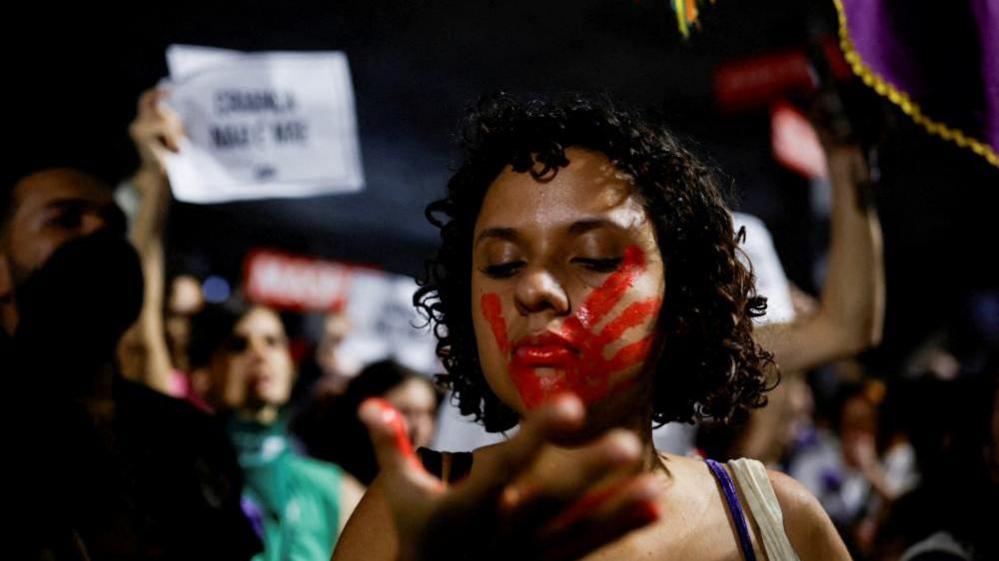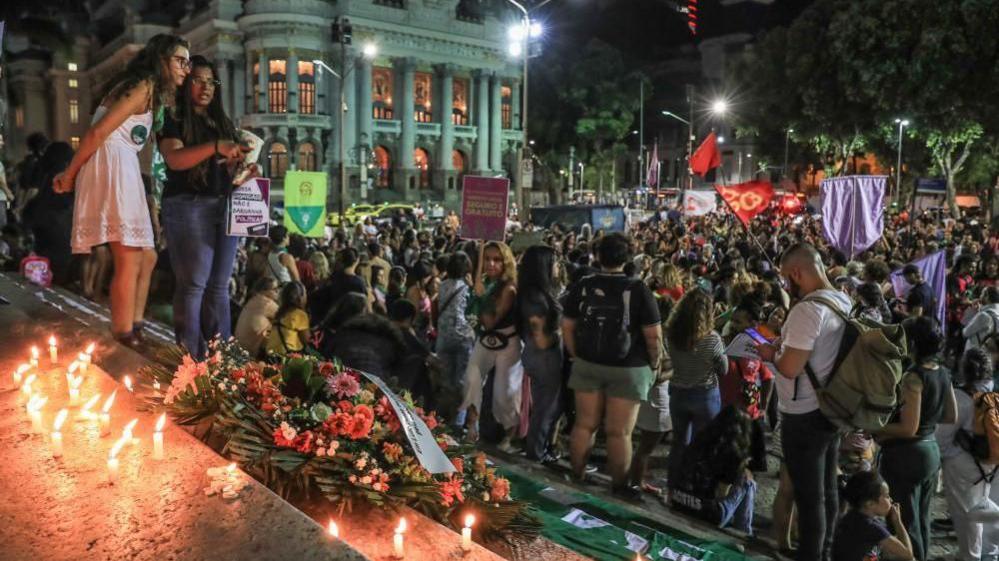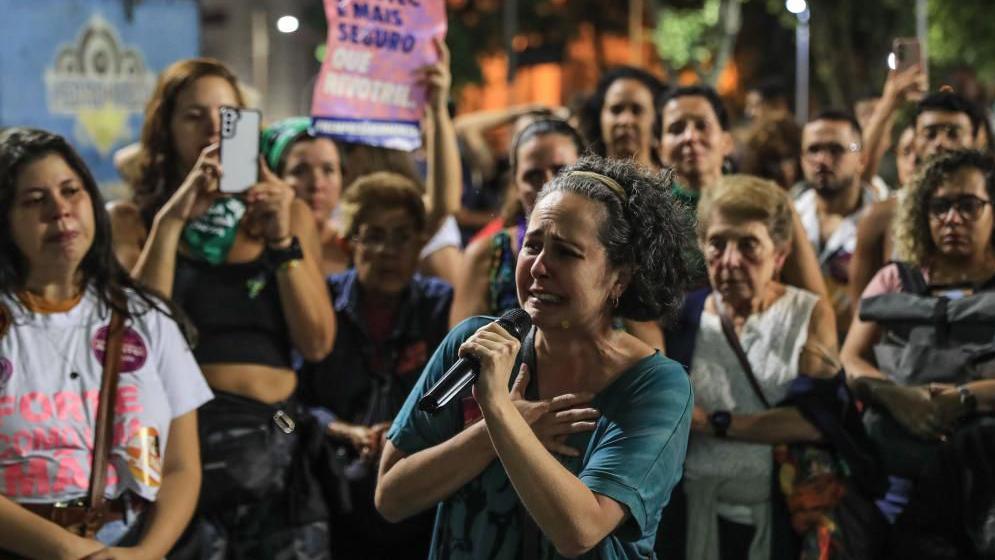Protests across Brazil over divisive abortion law

- Published
Thousands of people in Brazil have protested against a proposed nationwide law change which would equate abortion to homicide, even in cases where a pregnancy is the result of rape.
It would mean women who terminate pregnancies after 22 weeks could be jailed for up to 20 years.
Brazil's ruling party opposes the move but conservatives in Congress are attempting to push the bill through.
Protesters have gathered in many Brazilian cities in recent days, including Rio de Janeiro, São Paulo and Brasília.
Some have carried placards reading "a girl is not a mother", with much of the anger focused on the impact the law change could have on under-18s.
Analysis of crime data , externalshows children aged 13 and younger make up more than 60% of rape victims in the country.
Currently under Brazilian law, abortion is legal in very limited circumstances - when someone has been raped, if there is risk to life or if there is a diagnosis of foetal brain abnormality - and can carry prison sentences of up to three years outside of those cases.
If this change goes ahead, self-administering or consenting to an abortion could result in a jail sentence equivalent to those handed out in “simple homicide” cases, which range from six to 20 years.

The law would also apply to health professionals carrying out the procedure.
Simple homicide, under Brazil’s penal code, is when a person kills another with intent.
The bill has made quicker progress than expected after lawmakers bypassed some procedural stages, leading to outcry from opponents.
"We will not accept a setback," councilwoman Monica Benicio told Reuters news agency.
"We will not accept a conservative government negotiating spurious policies over our lives. We will continue to advance until legal abortion is a guaranteed right in Brazil," she added.

After the vote was pushed through, deputy Sóstenes Cavalcante, who authored the law change, was buoyant and responded by writing "victory to life" on social media.
The Brazilian government vehemently opposes the law change, with the country's human rights minister Silvio Almeida calling it "immoral".
In a statement, Mr Almeida said: "It is difficult to believe that Brazilian society, with the countless problems that it has, is currently discussing whether a raped woman and a rapist have the same value in terms of law."
His comments came as many activists highlighted the jail sentence for someone charged with rape is around 10 years.
While Brazil is led by President Luiz Inácio Lula da Silva's left-wing party, many of the country's lawmakers belong to former President Jair Bolsonaro's right-wing Liberal Party (PL) and other conservative groups.
PL are the largest party in Congress's Chamber of Deputies, but they will need support from other opposition lawmakers for it to pass.
No date has been set yet for a vote in the Congress's Chamber of Deputies.